CHRONIC STRESS
What is Chronic Stress?
Chronic stress refers to a consistent sense of feeling pressured and overwhelmed over a long period. Unlike acute stress, which is a response to an immediate threat, chronic stress is the result of prolonged exposure to stressors. This type of stress can have serious impacts on both mental and physical health if not managed effectively.

Causes of Chronic Stress
Chronic stress can be caused by a variety of factors, including:
- Work-related pressures, such as long hours, high demands, and job insecurity
- Financial difficulties
- Relationship problems
- Health issues or caring for a sick loved one
- Persistent negative thoughts and worries
- Major life changes or traumatic events
Symptoms of Chronic Stress
Chronic stress can manifest in numerous ways, both physically and emotionally, including:
- Emotional symptoms: Anxiety, irritability, depression, mood swings, and a sense of being overwhelmed
- Physical symptoms: Headaches, muscle tension, fatigue, sleep disturbances, gastrointestinal problems, and chest pain
- Cognitive symptoms: Difficulty concentrating, forgetfulness, constant worry, and negative thinking
- Behavioral symptoms: Changes in appetite, procrastination, increased use of alcohol or drugs, and withdrawal from social activities
You've taken the first step now let us help you find the right support
Recognizing Clinical Depression
– Lasting sadness
– Loss of interest in most activities
– Constant fatigue or low energy
– Negative thoughts
– Feelings of worthlessness, hopelessness, or guilt
– Difficulty concentrating on daily tasks
– Changes in eating and sleeping patterns
– Restlessness or irritability
– Physical aches and pains without a clear cause
– Thoughts of death or suicide
Signs Your Child
Needs to See a Child psychiatrist
Recognizing when your child may need to see a psychiatrist is crucial for addressing their emotional and mental well-being. Here are some signs that may indicate it’s time to consider seeking help from a Child Psychologist in Calicut:
- Your child is dealing with a significant change or a stressful situation, like bullying, a health issue, divorce parents, or a move to a new city or school.
- Your child's mental, emotional, and behavioral problems seem to be getting worse over time instead of better.
- Your child or family has experienced trauma, such as a death, an accident, or abuse.
- Your child encounters challenges when it comes to forming and maintaining friendships.
- You notice big notable shifts in your child's temperament and behavior.
- They often have trouble with their behavior in school.
- Your child is worrying to much for trivial things
- Your child's grades are dropping.
Common Conditions Addressed at Our Center
Clinical child psychology is a field dedicated to researching, evaluating, and addressing a broad spectrum of interconnected biological, psychological, and social challenges encountered by children.

ANXIETY
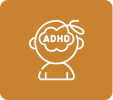
ADHD

DEPRESSION

AUTISM

LEARNING PROBLEMS

BEHAVIOURAL PROBLEMS

ADJUSTMENT PROBLEMS

STRESS
At Mind Weavers, our Child Psychologists are well-versed in the latest evidencebased interventions, providing personalized counseling to address the unique needs of each child.
Skills and Procedures Utilized
Clinical child psychology encompasses a wide range of procedures and skills addressing your child’s needs, including:
- Assessment (e.g., psychological, intellectual, cognitive, and behavioral evaluation).
- Intervention (e.g., psychotherapy and applied behavior analysis).
- Prevention program development (e.g., school readiness,bullying, addictions, obesity).
- Consultation with transdisciplinary team
- Evidence based Practices

Services Offered By Our Center
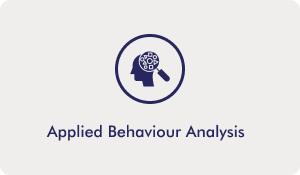


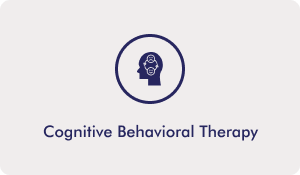
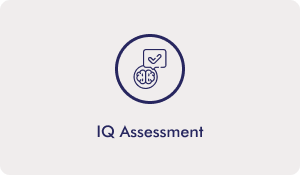
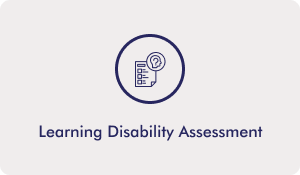


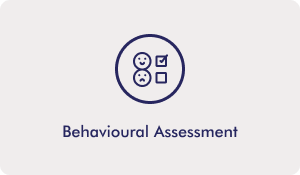
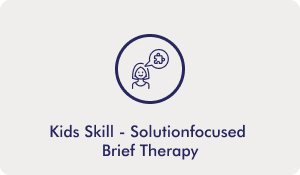
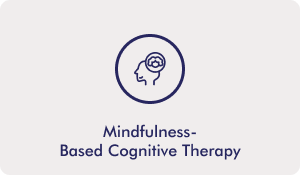
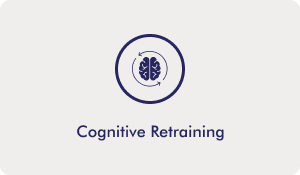





These services are administered by experienced and compassionate clinical psychologists and therapists that ensure your child receives the care and support they need to lead healthier and more fulfilling lives.
Health Effects of Chronic Stress
Long-term exposure to chronic stress can lead to significant health issues, including:
– Cardiovascular diseases (high blood pressure, heart attack, stroke)
– Weakened immune system, making you more susceptible to infections
– Mental health disorders such as anxiety and depression
– Digestive problems
– Weight gain or loss
– Sleep disorders
– Skin conditions like eczema or psoriasis
Health Effects of Chronic Stress
Long-term exposure to chronic stress can lead to significant health issues, including:
– Cardiovascular diseases (high blood pressure, heart attack, stroke)
– Weakened immune system, making you more susceptible to infections
– Mental health disorders such as anxiety and depression
– Digestive problems
– Weight gain or loss
– Sleep disorders
– Skin conditions like eczema or psoriasis
Managing Chronic Stress:
Effective management of chronic stress involves various strategies, including:
– Lifestyle Changes: Regular physical activity, balanced diet, adequate sleep, and avoiding alcohol and drugs
– Relaxation Techniques: Meditation, deep breathing exercises, yoga, and mindfulness practices
– Time Management: Prioritizing tasks, breaking tasks into manageable steps, and setting realistic goals
– Support System: Building strong relationships with friends and family, seeking social support, and talking to trusted individuals about your stress
– Professional Help: Seeking counseling or therapy, particularly cognitive-behavioral therapy (CBT), and considering medication if prescribed by a healthcare professional
Frequently asked questions
Acute stress is a short-term response to an immediate threat or challenge, which usually resolves once the situation is over. Chronic stress is ongoing and persistent, often resulting from continuous exposure to stressors over an extended period.
Chronic stress can have serious impacts on both mental and physical health, leading to conditions such as cardiovascular diseases, weakened immune system, anxiety, depression, digestive issues, sleep disorders, and more.
Yes, chronic stress can be managed effectively through lifestyle changes, relaxation techniques, time management, building a support system, and seeking professional help if needed.
To reduce chronic stress, you can:
– Engage in regular physical activity
– Practice relaxation techniques such as meditation or yoga
– Improve your time management skills
– Build a supportive network of friends and family
– Seek professional help if necessary
You should seek professional help if chronic stress is interfering with your daily life, affecting your health, or if you are unable to manage it on your own. A mental health professional can provide guidance and treatment options.
Yes, lifestyle changes such as regular exercise, healthy eating, adequate sleep, and avoiding alcohol and drugs can significantly help in managing chronic stress and improving overall well-being.
Yes, techniques such as deep breathing exercises, progressive muscle relaxation, mindfulness meditation, and yoga can be very effective in managing chronic stress.
Chronic stress can lead to mental health issues such as anxiety, depression, and mood swings. It can also exacerbate existing mental health conditions and make it harder to cope with everyday challenges.
While it is normal to experience stress occasionally, feeling stressed all the time is not healthy and can lead to chronic stress, which requires attention and management to prevent adverse health effects.
Help for managing chronic stress can be found through:
– Mental health professionals, such as psychologists, psychiatrists, and counselors
– Stress management programs and workshops
Mind Weavers for Adult Psychology -
Why We're Different?
✨Experience:
Mind Weavers stands out in the field of adult psychology for several reasons. Our team of licensed professionals brings a wealth of experience in dealing with adult psychological issues. We understand that adulthood is a time of significant transition and are committed to helping you navigate this period with empathy and expertise.
✨Understanding Issues from The Root:
We support a comprehensive strategy for mental health. Hence, it means we don’t just focus on your symptoms; we explore the root causes of your challenges. Therefore, by addressing these underlying issues, we aim to provide long-lasting solutions that improve your overall well-being.
✨Supportive Environment:
Another reason to choose Mind Weavers is our commitment to creating a supportive environment. We know that discussing mental health can be difficult, which is why we prioritize creating a safe, non-judgmental space. Our goal is to make you feel comfortable and heard, ensuring that you can openly discuss your concerns and challenges.
✨Flexible Treatment Plans:
Additionally, we offer flexible treatment options tailored to fit your lifestyle. So, whether you prefer in-person sessions or online consultations, we make it easy to access the help you need. Our flexible scheduling and various therapy modalities ensure that you can find the right fit for your needs.
Therefore, take the first step towards a healthier adulthood by choosing Mind Weavers. Your mental well-being deserves the best care, and we’re here to provide it.
Choosing Mind Weavers for
Your Child's Well-Being
At Mind Weavers, our aim is to have a happy, playful, and confident child.
We prioritize your child’s well-being and offer top-quality mental health services to support their growth and happiness. Our dedicated professionals including child psychologists, therapists, and counelors help children overcome challenges, develop crucial life skills, and thrive emotionally.
At Mind Weavers, you’re choosing more than specialized services; you’re selecting a caring and nurturing environment that fosters resilience, self-assurance, and a positive outlook.


